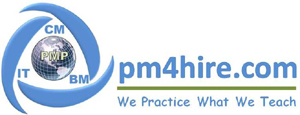

Office Management Courses
Office Management Skills are not just skills you need to supervise an office – it can be a critical success factor to how you will be perceived for future promotions as you learn to independently take on jobs of significant responsibility. We focus on the essential skills that have the most practical “immediate” results focus: once you have completed the program you can plan to do in-house training that prepares you for the unique ways in which different offices will operate and perform their own procedures and use their own standards. You will have the foundation to grasp what these needs are in order to make yourself a career with any company. Most people focus on these courses because they aim at (re-)entering the workforce – while it is logical to start at the bottom-rung of the ladder you must keep in mind that you cannot climb high on a short career-ladder, so the scope of what we cover does in fact assume that (given the opportunity) students will want to grow beyond an assistant-level position.
The goal of the program is to prepare students for future career growth opportunity by providing a solid understanding of basic business management along with necessary office skills. The subjects covered in this program are explained in this section: although you can take individual courses for flexibility in your studies, we believe you can benefit from taking these courses in a prescribed order. With individual courses we can concentrate on specific subject matter so you do not have to juggle multiple subjects: if you already have some of the basic skills covered in these courses there is no need to repeat that kind of training unless you have specific reasons for doing so. Many people already know the key MS-Office™ applications that are widely used, but others may need a refresher, or this may be the first time they are presented with that information and they need that foundation to succeed.
Business English & Proofreading BTOM_BEP
With the current MS-Office technology the issues of proofreading and grammar have been reduced but not eliminated. Furthermore, something can be grammatically correct and fail to meet accepted norms for business English. In Canada specifically, but also in other countries, many professionals have English as a second language: they need help to polish their communications.
The fact that professionals can now type their own documents makes it easier to move thoughts into a format where these thoughts can be shared. The most efficient use of peoples’ skills is to enable them to focus on their strengths: business English usually is not one of those strengths. As an office management professional you can take draft documents of any kind and transform them into communications for publication and distribution. Million dollar projects have been lost as a result of poor grammar and English usage, so the importance of the editing process is well understood in most professional businesses: a good opportunity to find a viable career.
Office Technology & Practices BTOM_OTP
Many people aspire to opportunities for working in an office of any kind. The challenge is, of course, the infinite variety of how offices work. A real estate office works differently from a doctor’s office or from a bank, to name a few. Therefore, we must focus on the general skills that allow you to quickly perceive what is unique in a particular office environment that requires you to adapt and adopt techniques and procedures pertaining to that specific environment.
The key to success is that you have a variety of skills that may be called on for reception, to do filing with indexing, to type documents, to make phone calls, to send FAX documents, to make copies and bind copies of documents, and the list goes on. Obviously there is no way to prepare for every possible request, so in this course we focus on the most common practices that give you a good foundation for being productive while you learn other specialized routines on the job. This is part of a life-long commitment to stay current as office technology continues to evolve.
MS-Office™ Applications Training BTOM_MAT
Trying to remain current with different MS-Office™ applications by taking courses to learn each new release is a losing battle. In this course we try to help students to understand fundamental design concepts and to show the availability of support materials that help them to quickly learn how new releases operate. There are 4 major products that we focus on:
- MS-Word = the preeminent word processing program for most office settings, used to create all our notebooks, for example.
- MS-Excel = most office jobs require you to have a good grasp of MS-Excel, and in this part of the course we will give you a complete understanding of what it can do.
- Ms-PowerPoint = for presentations of any kind PowerPoint is similarly the most often cited application to master for office jobs.
- MS-Outlook = one of the most commonly used E-mail management systems.
These courses are focused on self-study guides with exercises that help you to explore what the products do, and in particular where you find detailed instructions within each of these systems, so that you can quickly adapt to the release that may be in use at an employment location. The appearance of how each product works will be determined in part by the version of the Windows operating system that is used on your computer.
Dictation & Keyboarding Skills BTOM_DKS
The purpose of this course is to develop proper keyboarding skills to be able to take dictation and make that quick and accurate enough to keep up with spoken sources: live recording of meetings is the major skill only top-notch typists can achieve, so in most cases we will look at transcribing an audio recording. Verbatim recording (for courts) is a technique using specialized equipment to enable the practitioner to record faster than with a conventional keyboard on a computer, but with improved audio recording technology that becomes less critical, and we exclude that scope from the course. Transcription is when a typist reads notes and re-types the information in a format that can then be more easily shared. Since most managers now use computer equipment most likely you will be asked to proofread and edit these documents rather than to create them from scratch.
Data Management Skills BTOM_DMS
The scope of data management is quite broad, ranging from managing large filing systems (such as the patient files in a doctor’s office) to extracting information from various computer based sources so that it can be used for decision purposes. The purpose of this course is to give you a good understanding of several dimensions of data management so that you can appreciate that the fundamentals remain the same regardless of technology.
Data Management is at the base of most business initiatives to get the information necessary for the project to succeed. It often is an office management responsibility to collect and organize these data and to present information in the best format for decision making. There are different tools you can use, but in this course we will use Excel™ because it is part of basic MS-Office functionality, sufficient to explore and learn concepts. Having the ability to manipulate or analyze large amounts of data will make you instantly more in-demand in the office.
Project Management Assistant BTOM_PMA
Generalized under the title “Project Management Assistant” are a number of support roles in the project management field, such as “Project Control Officer”, “Project Accountant”, that are more than just administrative positions. Rather, these are assistant management positions that are focused on the timeliness and cost of work in progress, which can make or break a project. In a control officer capacity you would monitor the daily “to do” lists to make sure supplies arrive on time, are verified, and promptly scheduled for payment. You make sure who is on site, and who is absent from work, which are key payroll responsibilities. You may collect status updates from site supervisors or team leads, to make sure the project stays on track. There are too many tasks that may be delegated to this role to cover off all possibilities in scope of work: what is important is to realize that the project structure has become increasingly common for managing change in the workplace, which adds to the value of being able to take on this role in smaller companies.
Customer Relationship Management BTOM_CRM
Another key career opportunity for people interested in administrative support is the CRM role of Customer Service Representative (CSR) that can cover a wide range of responsibilities based on the nature of CRM operations. With increased dependency on distance service providing we see a growing role of CRM in business operations today. To be effective you don’t just depend on any warm body somewhere in the world to placate customers – you ensure that you have a well-trained CSR team that works with CRM systems to deliver the right customer experience. It is important to understand the potential complexity of this role, and why in many organizations a CSR has a growing level of responsibility to work with customers to keep them happy when most customers no longer pay a visit to the office to talk out difficulties. The relative isolation from the customers can be a blessing for some CSRs, while it is a disadvantage to others that relish the face-to-face contact. This will be further explored in another career focus on selling.
Marketing & Selling Skills BTOM_MSS
One of the interesting areas of confusion in business is that people tend to think of marketing as selling: then they immediately back off from the subject because they do not see themselves as salespeople. Truth is, marketing is the strategic side of how to determine if there is a demand for specific products or services in order to develop the concepts and thus create something to sell in the future. For example, a project manager developing a business case is actively involved in marketing to establish what products or services (or infrastructure, etc.) are needed and then to explain the opportunity by selling it to the corporate executives. The course has a specific theme to explain marketing essentials: it offers opportunity to discuss and analyze specific applications to put a practical spin on theory.
 |
|